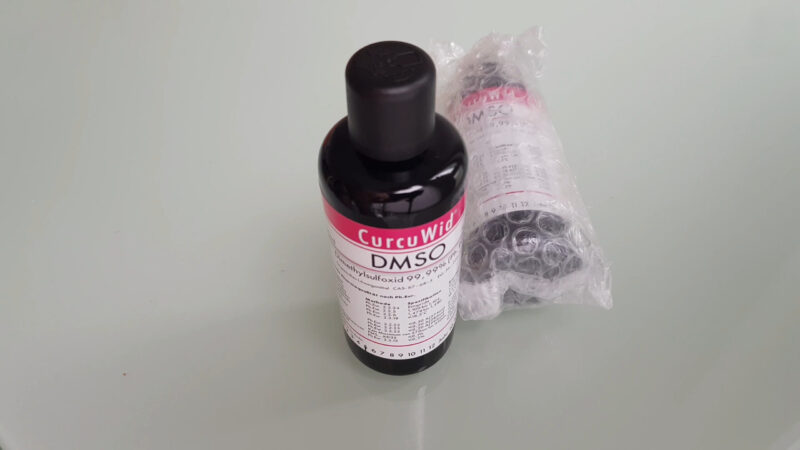There is a lot of confusion about whether or not Tylenol is actually a blood thinner. While it is commonly believed that Tylenol works by reducing blood flow and thinning the blood, the reality is that this medication does not have these same effects as aspirin or other blood-thinning medications.
Tylenol contains an active ingredient called DMSO, which has been shown to help relieve pain in a number of different ways. DMSO itself can act as a natural pain reliever by soothing irritated nerve endings and easing inflammation in the joints and muscles.
Additionally, DMSO can penetrate deep into the tissue layers to reduce pain at its source, making it an excellent choice for individuals with chronic pain conditions.
What does DMSO stand for?

DMSO stands for dimethyl sulfoxide, a natural compound that is found in plants and can be used to relieve pain. DMSO is known for its ability to penetrate deep into the tissue layers, making it an effective treatment option for a variety of conditions, including arthritis, bursitis, chronic back pain, fibromyalgia, muscle soreness, neuropathy, and plantar fasciitis.
How does DMSO relieve pain?
While Tylenol is a powerful pain reliever, DMSO 99.9% Pure Liquid is a natural pain reliever. It does not have the same effects on the blood as aspirin or other blood-thinners. In fact, studies have shown that DMSO actually helps to preserve platelet function and prevent bleeding.
This makes Tylenol an ideal choice for individuals who are concerned about the risk of bleeding associated with aspirin or other blood-thinners.
Can DMSO be used to treat other conditions?
Yes, DMSO has been shown to be effective in treating a number of different conditions, including:
- Arthritis
- Bursitis
- Chronic back pain
- Fibromyalgia
- Muscle soreness
- Neuropathy
- Plantar fasciitis
If you are interested in using DMSO to treat a condition not listed here, talk to your doctor to see if this treatment option is right for you.
Are there any side effects associated with DMSO?

DMSO is generally well-tolerated when used as directed. Some people may experience mild side effects, such as:
- Headache
- Dizziness
- Nausea
- Diarrhea
- Upset stomach
- Skin irritation
So despite its many benefits, DMSO does have some potential side effects and should be used under the guidance of a healthcare professional.
Ultimately, Tylenol is not a blood thinner. It is an effective pain reliever that can be used safely by most people. If you are concerned about the risk of bleeding associated with aspirin or other blood-thinners, consider talking to your doctor about whether Tylenol is right for you.
Comparing Tylenol with Other Pain Relievers
Tylenol vs. NSAIDs
When comparing Tylenol to NSAIDs like ibuprofen and aspirin, there are key differences to consider. NSAIDs reduce inflammation and pain, and some, like aspirin, have blood-thinning properties. Tylenol, however, does not reduce inflammation or thin the blood.
Choosing the Right Pain Reliever
Choosing the right pain reliever depends on individual health needs. For those looking to avoid blood thinners, Tylenol is a suitable option. However, for conditions that require reducing inflammation, NSAIDs might be more appropriate.
Safety and Side Effects
While Tylenol is safe when used as directed, it’s important to follow dosage instructions carefully. Overuse of Tylenol can lead to liver damage. It’s also important to check other medications for acetaminophen to avoid accidental overdose.
Recognizing Side Effects
Side effects of Tylenol are generally rare when taken as directed. However, some people may experience allergic reactions or liver problems, especially with high doses or prolonged use. It’s crucial to seek medical advice if any unusual symptoms occur.
FAQ
Can Tylenol be taken with blood thinners?
Yes, Tylenol can generally be taken with blood thinners, as it does not have blood-thinning properties. However, it’s always best to consult with a healthcare provider before combining medications.
Is Tylenol safe for people with a history of heart issues?
Tylenol is often considered safe for people with heart conditions, especially compared to NSAIDs, which can increase the risk of heart problems. However, individual health conditions vary, so consulting a doctor is advisable.
Can pregnant women take Tylenol?
Tylenol is generally considered safe during pregnancy, but it should be used only if clearly needed and under a doctor’s supervision.
Does Tylenol interact with other medications?
Tylenol can interact with certain medications, such as warfarin, a blood thinner, where it can increase the risk of bleeding. Always check with a healthcare provider for potential drug interactions.
How does Tylenol affect children differently than adults?
Children are more sensitive to the effects of Tylenol, and dosages must be carefully adjusted based on their age and weight. Overdosing in children can be particularly dangerous.
Can Tylenol help with inflammation?
No, Tylenol does not have anti-inflammatory properties. It’s effective for pain relief and fever reduction but not for reducing inflammation.
How long does it take for Tylenol to work?
Tylenol typically starts working within 30 to 60 minutes after ingestion, with its effects peaking around 1 to 3 hours later.
Conclusion
Tylenol, a popular pain reliever and fever reducer, does not act as a blood thinner. It’s a safe and effective option for those who need pain relief without the blood-thinning effects. However, like any medication, it should be used responsibly and under the guidance of a healthcare professional.
